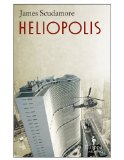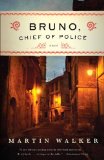Summary | Excerpt | Reviews | Beyond the book | Read-Alikes | Genres & Themes | Author Bio

Inspector Espinosa Series
by Luiz Alfredo Garcia-RozaA ruthless group of corrupt cops is playing a lethal game of cat and mouse in the latest installment in Garcia-Roza's Brazilian crime series.
A ruthless group of corrupt cops is playing a lethal game of cat and mouse in the latest installment in the "seductive" (New York Times Book Review) Brazilian crime series.
Copacabana, Rio de Janeiro. Three policemen have been killed over the course of a few days. They were mediocre cops, and their deaths have a lot in common: they were eliminated by a cold-blooded assassin, who leaves no trace and likes to fire at point-blank range.
Immediately the police world is thrown into turmoil. Who would risk running around the city killing cops, even unpopular ones? People involved in drug trafficking? Other policemen? Espinosa, chief of the 12th Precinct, doesn't have much to go on. And when the body of a woman connected to one of the dead cops is found on the sidewalk below her apartment window, things get even more complicated, as a reputed "witness" -- the wife of a high-ranking government official -- becomes obsessed with the case, and with Espinosa.
Nothing is quite as it first appears as Espinosa finds himself in his old haunts of Leme and Copacabana, and in the all-too-familiar murky terrain of corruption, secret lives, greed, and fear. A Window in Copacabana is the best novel yet in what Marilyn Stasio of the New York Times Book Review calls a "beguiling series."
If you like your mysteries to be all blood and guts and tidy endings, move on. On the other hand, if you're interested in a writer of thoughtful noir crime fiction who includes Dashiell Hammett and Raymond Chandler in his list of favorite authors, and cites Dostoyevsky's Crime and Punishment as his favorite novel, stop right here!..continued
Full Review
(296 words)
This review is available to non-members for a limited time. For full access,
become a member today.
(Reviewed by BookBrowse Review Team).
Luiz Alfredo Garcia-Roza used to be a Professor of Philosophy at Rio
University in Brazil until, about eight years ago, he decided to try
something new and turned to writing mysteries. He says that he was
attracted to writing mysteries because 'they are the direct descendants of
mythological thought (and ancient Greek poetry), and bring to the center of
the narrative the most intense and fundamental questions of the human being:
death and sexuality. These are also the main concerns of psychoanalysis, one
of the two areas of my academic research.'
He has always lived in
Copacabana
(a Rio neighborhood, on the coast, to the East of the city).
The fifth ...
This "beyond the book" feature is available to non-members for a limited time. Join today for full access.

If you liked A Window in Copacabana, try these:

by James Scudamore
Published 2010
By turns darkly humorous and poignant, James Scudamore’s Booker Prize-nominated novel is a highly original, surprising take on the rags-to-riches story.

by Martin Walker
Published 2010
The first installment in a wonderful new series that follows the exploits of Benoît Courrèges, a policeman in a small French village where the rituals of the café still rule.